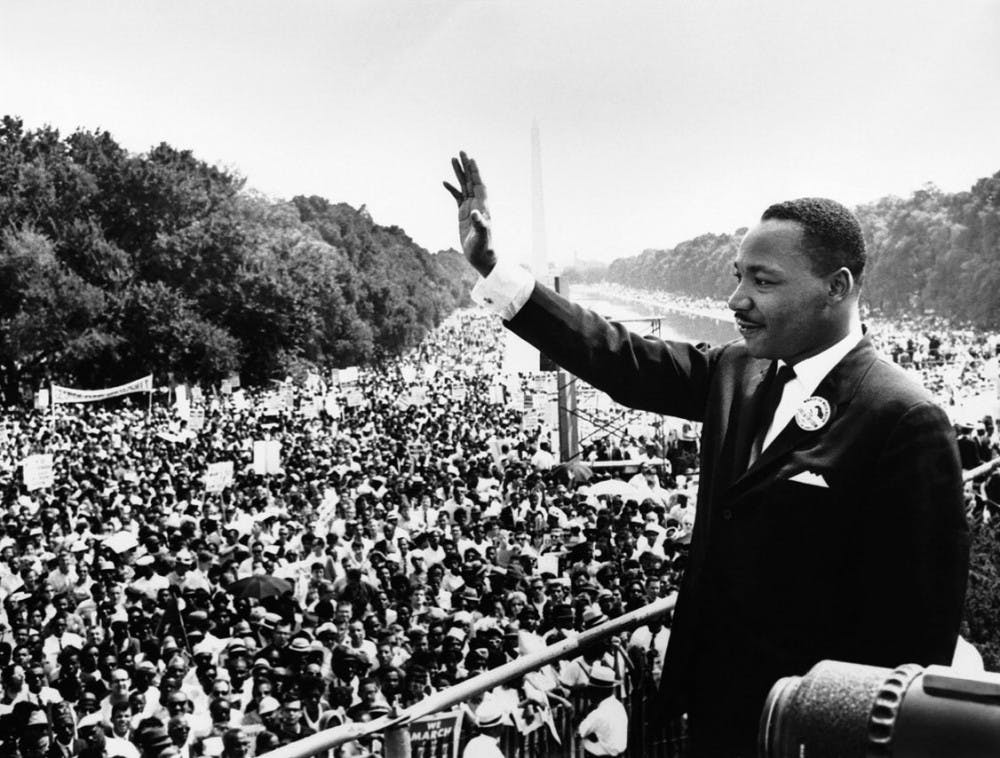April 4, 2018 marked the 50th anniversary of the murder of Dr. Martin Luther King Jr. A sniper assassinated King with a bullet to the neck while he was standing on the balcony of the Lorraine Motel in Memphis, Tennessee. King was a Baptist minister and founder of the Southern Christian Leadership Conference (SCLC). His principle of nonviolent civil disobedience led African-Americans through protests and the passage of the Civil Rights Act of 1964 and the Voting Rights Act of 1965. Martin Luther King Jr. Day is a federal holiday that marks the anniversary of his date of birth. The holiday, and broader public narrative surrounding King celebrates his achievements and how his efforts worked to establish equality for African-Americans. Equally important to King’s legacy — in addition to honoring the role he was born to play — is reckoning with his death and the way that he died.
The King that grew to popularity in the 1950s as a young minister was radically different than the man he was in the year he died. King was actively addressing economic justice and the plight of the unemployed and Americans living in poverty when he was assassinated. King traveled to Memphis because he and other SCLC members were called to support a sanitation workers’ strike. At the time, he was preparing for a march to Washington D.C. to lobby congress with the Poor People’s Campaign. The sanitation workers went on strike to demand fair pay, benefits and union recognition after two workers were crushed to death in a malfunctioning garbage truck.
King’s commitment to economic justice became much more visible during the end of his life, but it had been a part of other initiatives in which King participated. The 1963 march that made King an icon was The March on Washington for Jobs and Freedom. Four of the demands protesters made at the march centered around the conditions of workers, specifically regarding federal programming to train the unemployed and providing them with jobs at decent fare, a national minimum wage act for a decent standard of living, a broadened Fair Labor Standards Act and a federal Fair Employment Practices Act barring discrimination. Supporting the march did not indicate full endorsement of every demand, but King’s continued work for economic justice highlights his commitment.
King’s economic activism is often forgotten. King saw poverty as the result of systemic economic failure, and economic exploitation of the poor. He advocated for “democratic socialism,” in which citizens insert human values into the economy to temper free markets. He also believed that full employment would end poverty and foster growth within urban ghettos. His criticisms of racism, militarism and economic exploitation were all connected as criticisms of oppression, but these more radical positions have been left out of the sanitized versions of his life. Public narrative has stripped away King’s fight against poverty and his militarism, leaving only his non-violent principles. Heralding King as a spiritual and moral advocate against racism without acknowledging this more radical side is dangerous because it reduces King’s actions and impact on oppressed communities. Similarly, it is dangerous to sanitize his death and not acknowledge both the confirmed and suspected circumstances of his assassination.
James Earl Ray was convicted of the assassination of Dr. Martin Luther King Jr. Although he pleaded guilty to the murder, he would spend the rest of his life attempting to reverse his 99-year sentence. He was not the only individual to question his sole involvement. In 1999, a jury reached a unanimous verdict that King was assassinated as a result of a conspiracy, and not the actions of a lone gunman. Though the larger conspiracy is not thoroughly understood and James Earl Ray has since passed away, conversations around King’s death neglect to acknowledge this verdict’s outcome. Acknowledging the possibility of a wider conspiracy to murder Dr. King forces history to recognize that he was murdered for his beliefs. Doing so would taint the representation of him as a father of the movement beloved by both blacks and whites.
King was not killed in a random freak accident, nor did he pass away in his sleep. He was also not only an advocate for nonviolence, but also a critic of capitalism and the systemic economic exploitation of Americans in poverty. He is remembered as a beloved — and neutral — figure of the modern Civil Rights Movement, but was assassinated once his public statements became focused on the economic institutions of the US. The sanitization of his death and his legacy is a misrepresentation and changes the public memory of this important activist. This whitewashing of history functions as an extension of white supremacy — which Dr. King spent his life fighting.
Zari Taylor is a Senior Opinion columnist for The Cavalier Daily. She can be reached at opinion@cavalierdaily.com.







